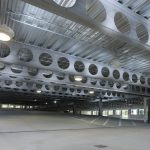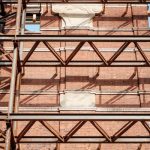C-Beams – Unique Capabilities To Mitigate Structural Floor Vibrations
There are many great reasons to use c-beams when constructing new buildings. For instance, they offer more support while weighing less. This allows you to get a sturdier building while cutting down on overall building costs.
That alone makes c-beams a great choice. However, there is another benefit that most people don’t know about: t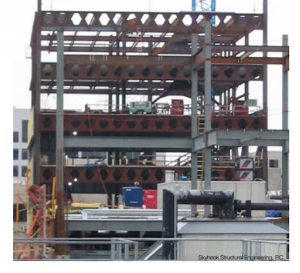 hese beams are able to mitigate structural floor vibrations in a powerful way.
hese beams are able to mitigate structural floor vibrations in a powerful way.
Still wondering how castellated beams will benefit your new building, especially when it comes to floor vibrations? Keep reading to discover the answer!
The Old School Design
Think about how much the standard office design has changed over the last few decades. A standard office space included giant file cabinets, huge bookshelves, and really tall partitions. This meant that even very active offices did not have very notable vibrations: between the heavy furniture and the standard thickness of the floor slabs, issues like vibration and damping basically took care of themselves.
Flash forward to the modern offices: most of those heavy pieces of office furniture are a thing of the past. In their place, we have lightweight computers and lightweight working stations. And due to the ability to store information both in the computers and in “the cloud,” those heavy bookshelves are no longer in play.
A lighter office, however, is potentially more susceptible to vibrations and damping. All of a sudden, the office space can feel a bit like a rowdy kid’s room—there’s a lot of running around, and things are practically vibrating on the walls and shelves.
Long and Strong
C-beams are the solution to the vibration problems caused by modern design. There are several reasons for this, but one reason is quite simple: c-beams themselves are quite long.
Office buildings designed without c-beams typically use many more beams. Thanks to c-beams being so long, you can build your structures while using far fewer beams. In this case, that means that your new buildings will have fewer “moving parts.”
The typical office space hasn’t gotten any less busy over the years. In fact, many spaces are more crowded and cluttered than ever before. And if a building is built with large numbers of beams, all of them have the potential to vibrate each other during the workday.
Conversely, using c-beams in your construction reduces the overall number of beams. Fewer beams, fewer vibrations: it really is that simple.
More Than Numbers
There is a lot of science behind c-beams and vibrations. For instance, in one test of c-beams and vibrations, the peak acceleration of vibrations due to human activity was only .29%, which is far below the recommendations of keeping this peak acceleration at .5% or lower.
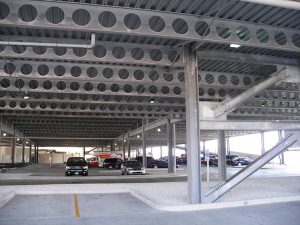
What does this actually mean, though? As it turns out, the benefits of c-beams go beyond math and science. To put it simply, buildings built using these c-beams have vibrations that workers will (for the most part) not notice.
Obviously, all buildings filled with human activity will experience vibrations. And even c-beams cannot eliminate those vibrations entirely. But these beams can functionally eliminate the vibrations in the sense that most employees will never be able to sense them.
This is one of the most powerful keys to employee productivity. Ever work in an office space with a high degree of vibration? It can often feel like working in a building that’s under construction. And all those vibrations amount to frequent distractions for all of the workers.
An office is only as productive as its workers. To get the most productive workers possible, it’s important to build structures using c-beams.
Protecting Your Investment
So far, we have focused on the human element when it comes to c-beams. This includes reducing distractions, boosting productivity and generally making the environment friendlier to work for.
However, there is another component that is worth thinking about: the equipment! As we said before, modern offices have evolved quite a bit compared to the offices of yesteryear. Those heavy bookshelves have all been replaced with lightweight computers and other delicate electronic equipment.
In many office spaces, computers represent the most expensive element. We typically spend thousands and thousands of dollars making sure that every employee has ready access to a desktop PC or a laptop.
However, computers are very susceptible to vibrations. Think of it this way: everyone knows that you’re not supposed to let a desktop PC tower fall to the ground. But why is that? The basic answer is that the vibrations from landing may disrupt the hard drive, the motherboard, or other internal components of the computer.
Offices with a lot of vibration present a different threat to these computers. Instead of one giant vibration, it’s countless little vibrations that add up. And they do add up: pretty soon, you’ll have to replace computer equipment left and right. It’s ultimately a lot easier to simply design a building using c-beams: you’ll reduce those vibrations and protect your investment from daily vibrations.
Future Proofing Your Construction
As you know, the United States does not currently limit floor vibrations as part of any building code. So, if you are constructing a new building in America, your primary motivation for using c-beams will be to prevent distractions and protect equipment.
However, other parts of the world do have regulations when it comes to vibrations. This includes even some of our immediate neighbors such as Canada.
We like to think of using c-beams as a way of “futureproofing” your construction. Eventually, the United States may institute similar regulations. If (or when) that happens, some companies may have to drastically rethink how they design their buildings.
By using c-beams now, you can get ahead of the curve if any of these regulations should change. And it also makes it easier for your business to expand internationally if any of the countries that you are building in have their own regulations.
Consider C-Beams for Your Next Construction Project
Ultimately, c-beams are not some sort of fad that is going to fade away. This technology has been proven as the superior construction solution for decades. And extensive testing has shown this to be the best solution for reducing vibrations in your buildings.
Reducing vibrations is going to create more productive employees. Furthermore, it helps protect all of your expensive equipment. For your next construction project, use c-beams and discover what the hype is all about!


